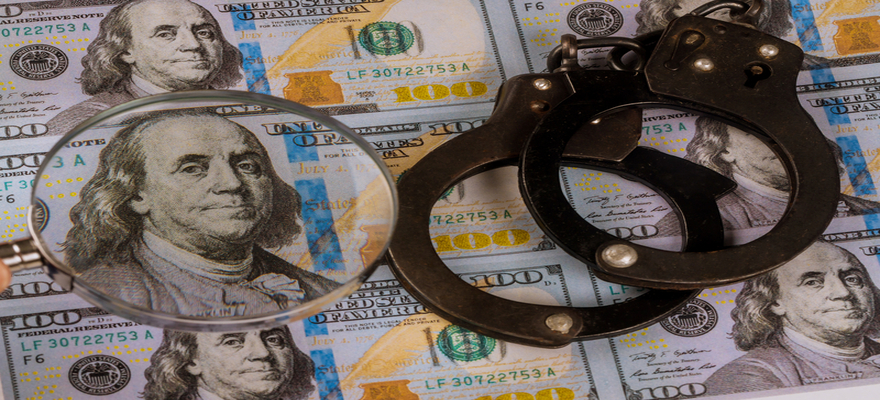
What are Federal Counterfeiting Crimes?
Federal counterfeiting crimes refer to illegal activities involving the production, distribution, or use of counterfeit goods or currency. Counterfeiting involves creating and selling fake or imitation versions of genuine products or currencies with the intent to deceive consumers or gain illegal profits.
Types of Federal Counterfeiting Crimes
Counterfeit Currency: Counterfeiting currency involves the unauthorized reproduction of paper money or coins, aiming to pass them off as genuine currency. Counterfeit money can be created using advanced printing techniques, such as high-quality printers, special inks, and security feature replication.
Counterfeit currency undermines the integrity of national economies, disrupts monetary systems, and leads to financial losses for individuals, businesses, and governments. Authorities employ various security measures, such as specialized printing techniques, security threads, holograms, and unique designs, to prevent counterfeiting and detect counterfeit currency.
Counterfeit Goods: This involves the unauthorized replication or imitation of branded products, such as clothing, accessories, electronics, pharmaceuticals, luxury goods, and more. Counterfeiters produce these fake goods to deceive consumers into believing they are purchasing genuine products. Counterfeit goods often infringe upon trademarks, copyrights, and patents, violating intellectual property laws. In addition to deceiving consumers, counterfeit products can pose significant risks, such as poor quality, safety hazards, and negative effects on the economy and legitimate businesses.
Penalties
Counterfeiting crimes are subject to severe legal penalties. Governments, law enforcement agencies, and international organizations collaborate to combat counterfeiting through enforcement efforts, public awareness campaigns, increased security features in products and currency, and international cooperation to dismantle counterfeit networks.
Counterfeiting Currency:
Counterfeiting currency is considered a serious offense due to its impact on the economy and public trust. Penalties for counterfeiting currency can be severe and may include lengthy prison sentences, substantial fines, or both. Counterfeiting an official currency is a federal offense, and those convicted may face imprisonment ranging from several years to life, depending on the circumstances.
Counterfeiting Goods:
Counterfeiting goods refers to the production, distribution, or sale of fake or unauthorized copies of branded products, typically with the intent to deceive consumers. Penalties for counterfeiting goods can also be significant, as it infringes upon intellectual property rights and harms legitimate businesses. The penalties may include imprisonment, fines, asset forfeiture, and restitution to the affected brand owners. The severity of the penalties depends on factors such as the scale of the operation, the value of the counterfeit goods, and the criminal history of the offender.
Counterfeiting Documents:
Counterfeiting documents involves the creation or alteration of official documents, such as passports, driver’s licenses, identification cards, or other government-issued documents. The penalties for document counterfeiting vary widely depending on the jurisdiction. It is considered a serious offense and may result in imprisonment, fines, or both. The penalties can be particularly severe if the counterfeited documents are used for illegal activities or to facilitate other crimes.
Intellectual Property Counterfeiting:
Intellectual property counterfeiting involves the unauthorized reproduction or distribution of copyrighted materials, such as music, movies, software, or counterfeit trademarks and logos. The penalties for intellectual property counterfeiting also vary depending on the jurisdiction. Individuals found guilty of intellectual property counterfeiting may face criminal charges, including imprisonment and fines. Civil penalties may also apply, resulting in monetary damages awarded to the rights holders.
What Does a Federal Counterfeit Crimes Defense Attorney Do?
A federal counterfeit crimes defense attorney specializes in representing individuals who have been accused of engaging in counterfeit activities. Counterfeit crimes involve the production, distribution, or sale of counterfeit goods or currency, typically with the intent to deceive others for financial gain. As a defense attorney in this field, their primary role is to provide legal representation and advocate for their clients throughout the legal process.
Key Responsibilities of a Federal Counterfeit Crimes Defense Attorney:
Legal Consultation: The attorney will meet with their clients to understand the details of the case, gather relevant information, and provide legal advice. They will explain the potential consequences, and available defense strategies, and guide the client through the legal proceedings.
Case Investigation: The attorney will conduct a thorough investigation of the case, including reviewing evidence, examining the authenticity of the allegedly counterfeit items, and identifying any procedural or evidentiary issues that may benefit the defense.
Defense Strategy: Based on the evidence and circumstances of the case, the attorney will develop a defense strategy tailored to the client’s specific situation. This may involve challenging the credibility of the evidence, questioning the methods used to establish counterfeit activity, or demonstrating a lack of intent or knowledge on the part of the accused.
Negotiations: If the case allows for it, the attorney may engage in negotiations with the prosecution to seek a favorable plea agreement or reduced charges. They will advocate on behalf of their client to secure the best possible outcome.
Court Representation: During court proceedings, the defense attorney will represent their client, present arguments, cross-examine witnesses, and challenge the prosecution’s evidence. They will strive to raise reasonable doubt in the minds of the judge or jury regarding the client’s involvement in counterfeit activities.
Legal Documentation: The attorney will prepare and file legal documents on behalf of their client, such as motions, responses, and other necessary paperwork required by the court.
Sentencing Advocacy: If the client is convicted, the attorney will advocate for a fair and lenient sentence during the sentencing phase. They may present mitigating factors, such as lack of prior convictions, cooperation with law enforcement, or evidence of rehabilitation.
Overall, the primary goal of a counterfeit crimes defense attorney is to protect the rights and interests of their clients while navigating the complexities of the legal system in counterfeit-related cases.
The lawyers at the Attorneys For Freedom Law Firm have experience defending clients charged with counterfeiting crimes. Our attorneys have the experience and knowledge to provide the best possible defense to these charges.
To schedule a Strategy Session with an experienced federal counterfeit crimes attorney, contact the Attorneys For Freedom today. We can be reached online at AttorneysForFreedom.com or by calling our Arizona office at 480-755-7110.







